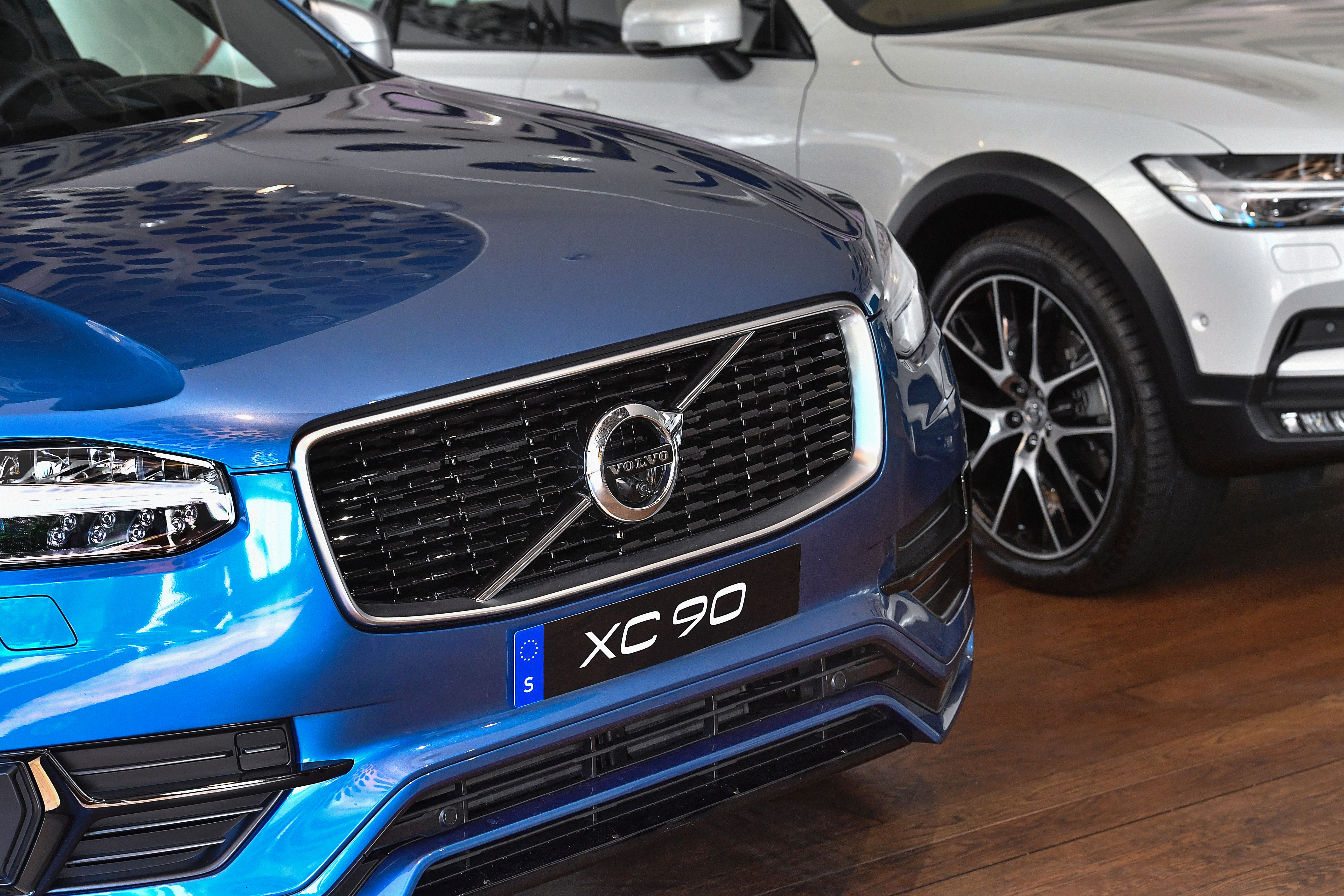Volvo's electric gamble
Starting in 2019, every new Volvo model will run at least partly on electricity

A free daily email with the biggest news stories of the day – and the best features from TheWeek.com
You are now subscribed
Your newsletter sign-up was successful
The smartest insight and analysis, from all perspectives, rounded up from around the web:
Volvo "is betting that the future is electric," said Adele Peters at Fast Company. Last week, the Swedish firm became the first mainstream car company to commit entirely to electrified vehicles. Starting in 2019, every new Volvo model will run at least partly on electricity. Some will be all-electric cars, while others will be hybrids, which use batteries and electric motors to supplement traditional combustion engines run on gasoline. The standard industry production cycle is seven years, so Volvo will continue to build and sell diesel and gas-powered cars until about 2025. But as those older models are retired, every vehicle in the Volvo fleet will eventually have an electric motor.
"By plunging fully into this space, Volvo appears equal parts visionary, zealot, and daredevil," said Aarian Marshall at Wired. Despite the buzz, electric vehicles still make up less than 1 percent of global car sales — and "for good reason." Their batteries are still heavy and expensive and provide limited range; charging infrastructure is still relatively sparse. Here in the U.S., low gas prices "blunt the ‘save on fuel' sales pitch." But look closer, and Volvo's gambit isn't as crazy as it initially seems. Governments around the world are implementing strict new emissions standards to fight climate change, with France announcing last week that it will ban sales of diesel and gas vehicles altogether by 2040. Self-driving cars, considered to be the industry's "next big thing," also work better with electric motors, which are simpler than combustion engines.
The Week
Escape your echo chamber. Get the facts behind the news, plus analysis from multiple perspectives.

Sign up for The Week's Free Newsletters
From our morning news briefing to a weekly Good News Newsletter, get the best of The Week delivered directly to your inbox.
From our morning news briefing to a weekly Good News Newsletter, get the best of The Week delivered directly to your inbox.
This announcement "signals nothing about the electric-car future and everything about Volvo's niche marketing," said Holman Jenkins Jr. at The Wall Street Journal. The automaker's famous emphasis on safety "has long since become the price of admission in the car business," so it needs a new sales angle, and electrification fits the bill. "Something else is also going on." Though based in Sweden, Volvo has been under Chinese ownership since 2010. That country has been promoting electric vehicles through aggressive emissions mandates, in order to reduce its dependence on foreign oil, and it is now Volvo's biggest market. But where will Chinese drivers get their substitute energy source? Coal-powered electrical plants. Not exactly the greenest of solutions.
Volvo's move is "scary news for Tesla," said Leonid Bershidsky at Bloomberg. But neither company can rest easy. "The market for electric cars is largely government-driven," and when government incentives and tax breaks for electric vehicles dry up, so do sales. It's "still too soon to write an obituary for the internal combustion engine," said Brad Plumer at The New York Times. But the march toward electric vehicles is picking up speed. Plug-in hybrids and all-electric cars are projected to make up 54 percent of new light-duty vehicles sales globally by 2040. Plug-ins are expected to become cost competitive with gas-powered cars between 2025 and 2030, even without subsidies. "Once that happens, mass adoption should quickly follow."
A free daily email with the biggest news stories of the day – and the best features from TheWeek.com
-
 How the FCC’s ‘equal time’ rule works
How the FCC’s ‘equal time’ rule worksIn the Spotlight The law is at the heart of the Colbert-CBS conflict
-
 What is the endgame in the DHS shutdown?
What is the endgame in the DHS shutdown?Today’s Big Question Democrats want to rein in ICE’s immigration crackdown
-
 ‘Poor time management isn’t just an inconvenience’
‘Poor time management isn’t just an inconvenience’Instant Opinion Opinion, comment and editorials of the day
-
 The pros and cons of noncompete agreements
The pros and cons of noncompete agreementsThe Explainer The FTC wants to ban companies from binding their employees with noncompete agreements. Who would this benefit, and who would it hurt?
-
 What experts are saying about the economy's surprise contraction
What experts are saying about the economy's surprise contractionThe Explainer The sharpest opinions on the debate from around the web
-
 The death of cities was greatly exaggerated
The death of cities was greatly exaggeratedThe Explainer Why the pandemic predictions about urban flight were wrong
-
 The housing crisis is here
The housing crisis is hereThe Explainer As the pandemic takes its toll, renters face eviction even as buyers are bidding higher
-
 How to be an ally to marginalized coworkers
How to be an ally to marginalized coworkersThe Explainer Show up for your colleagues by showing that you see them and their struggles
-
 What the stock market knows
What the stock market knowsThe Explainer Publicly traded companies are going to wallop small businesses
-
 Can the government save small businesses?
Can the government save small businesses?The Explainer Many are fighting for a fair share of the coronavirus rescue package
-
 How the oil crash could turn into a much bigger economic shock
How the oil crash could turn into a much bigger economic shockThe Explainer This could be a huge problem for the entire economy